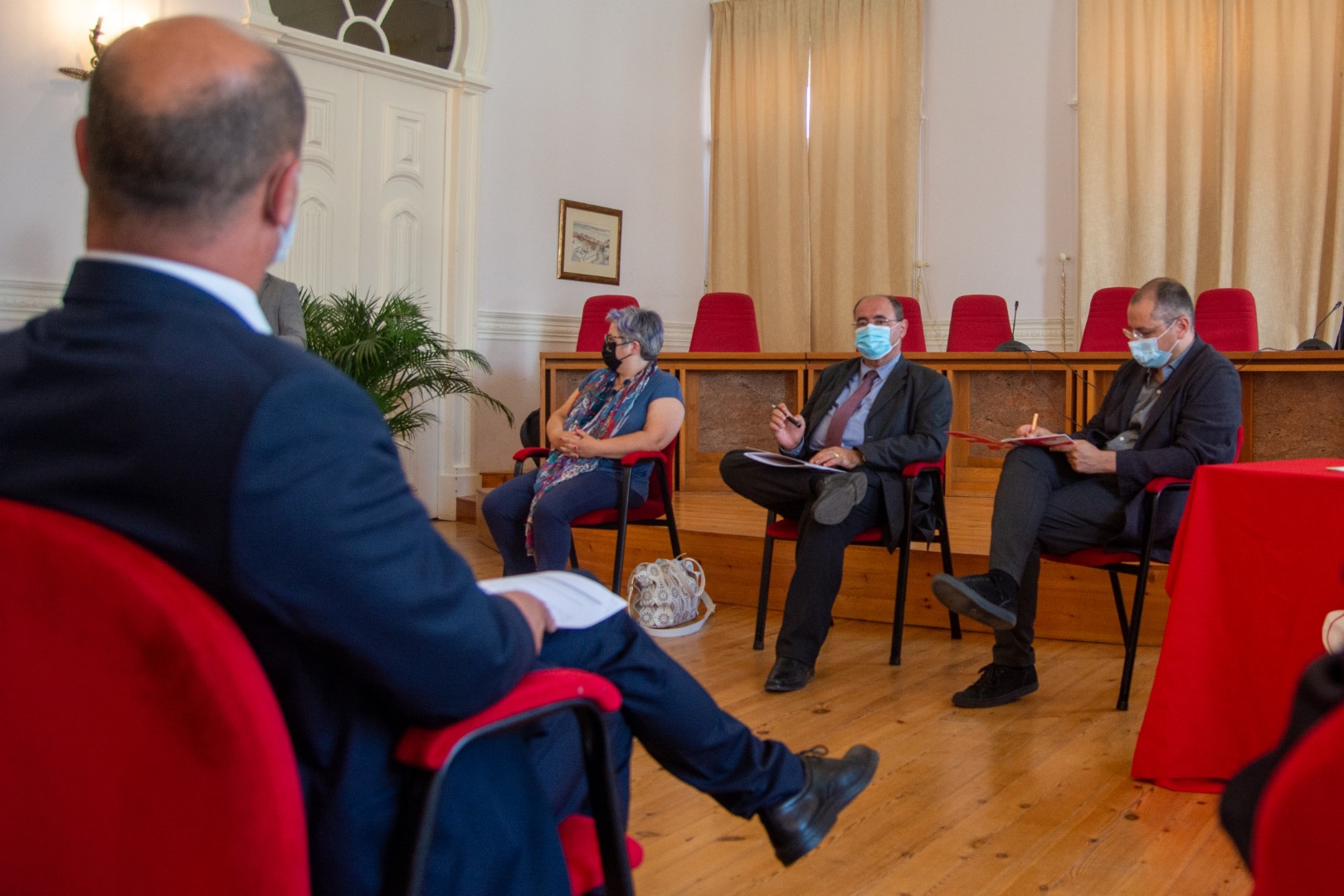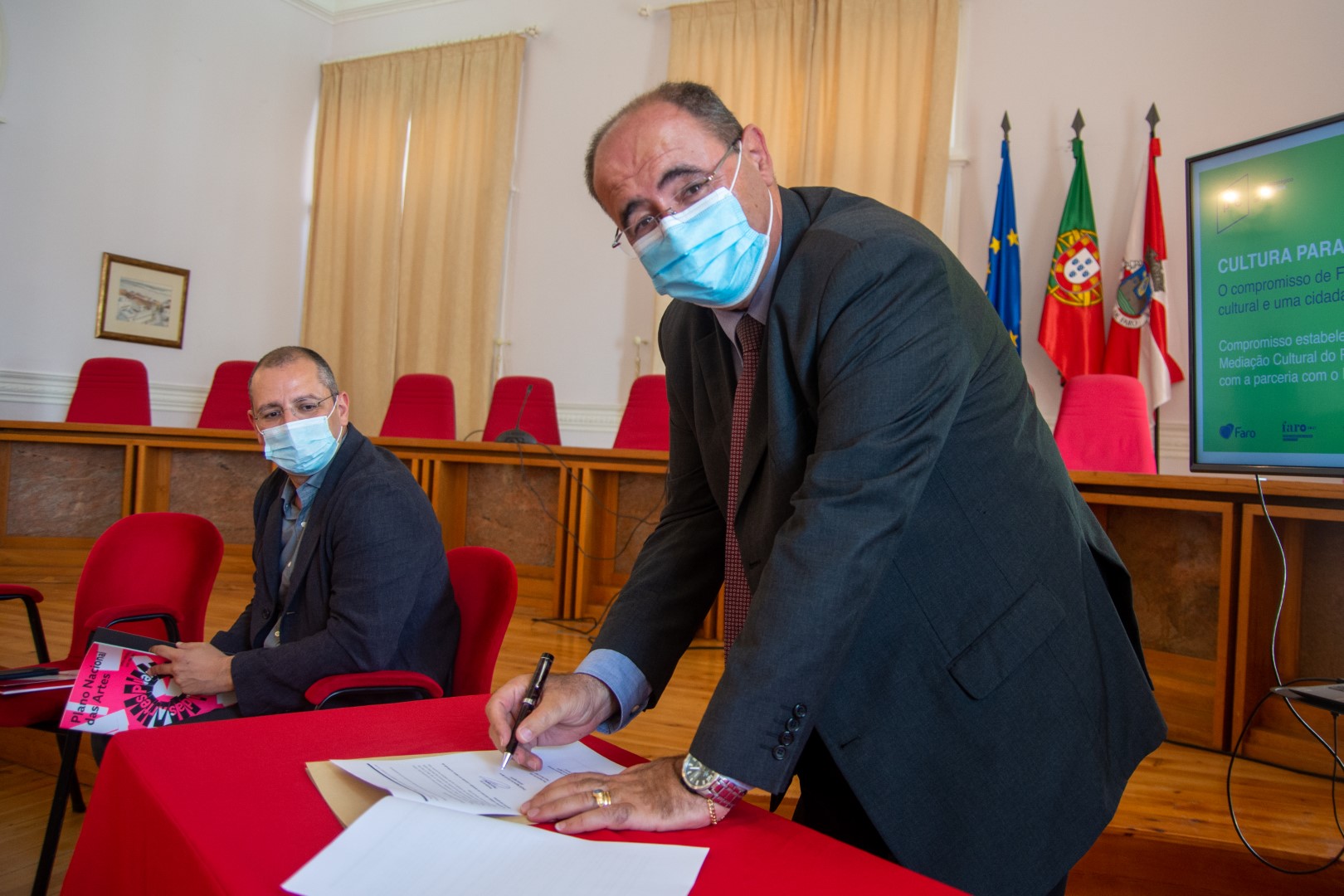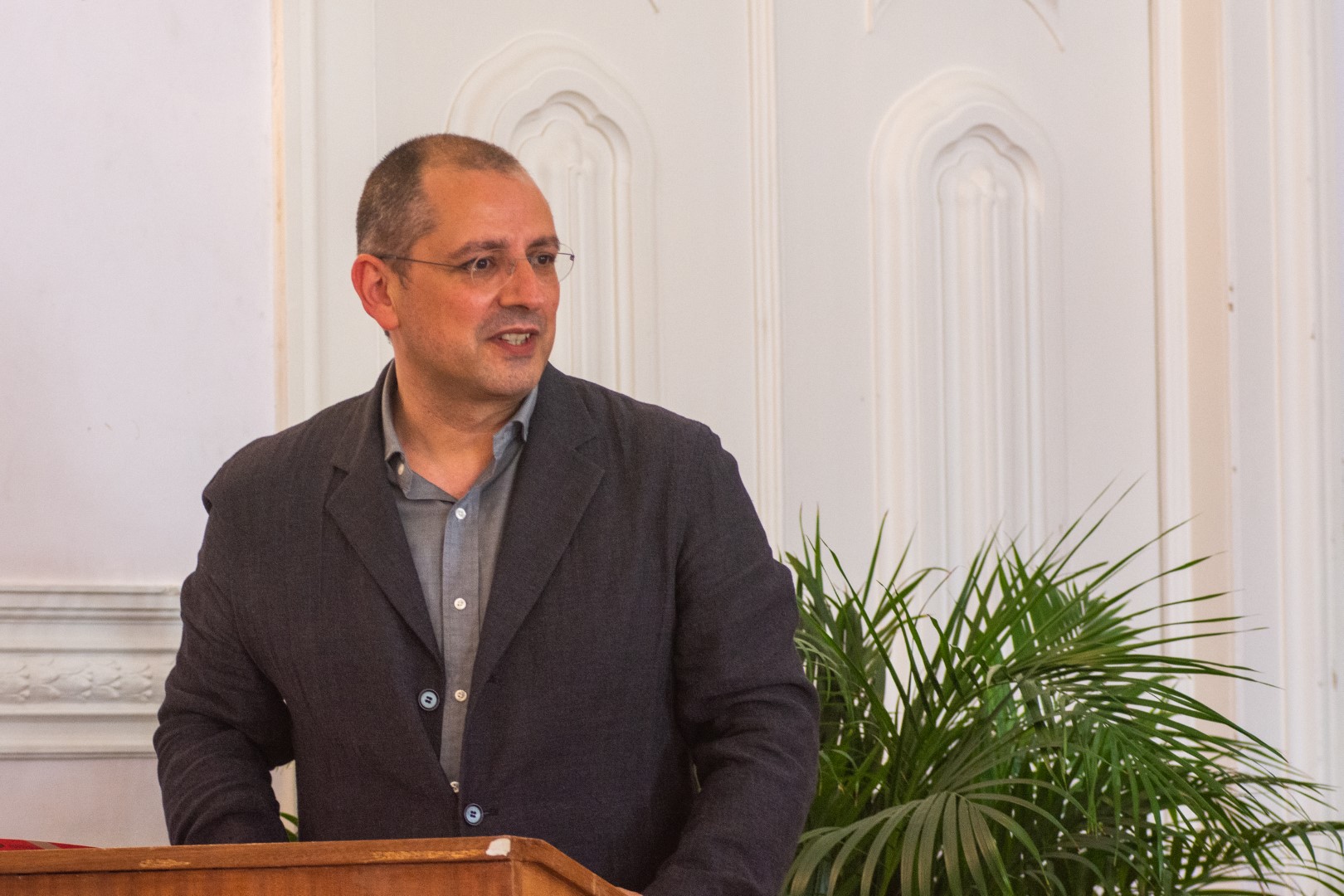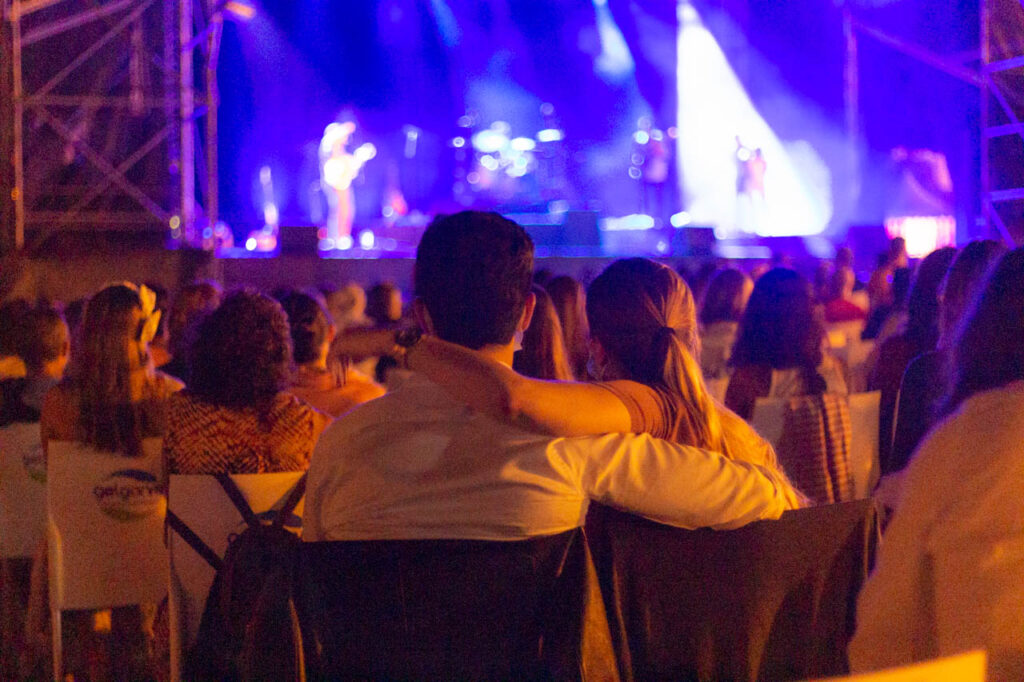Faro it wants to break down the “barriers” that still keep some audiences away from culture. Basically, he wants “Culture for Todxs” and that was exactly what was established, on Monday, June 14, through the signing of protocols between the municipality, schools and cultural agents in the municipality and also the National Plan for the Arts.
The signed documents, explained Rogério Bacalhau to the Sul Informação, «follows our cultural strategic plan for the municipality, which was approved last year and which results from a set of ideas and contributions from more than 400 institutions and personalities in the municipality».
This plan, approved unanimously, according to the mayor, “reflects well what our community in Faro expects from culture” and brought the Municipality closer to cultural agents.
Now, with this “Culture for Todxs”, the objective is to seek not only more audiences but also other audiences.

«There are many people who today have no contact with culture, do not go to shows, do not go to concerts and do not participate in these cultural events for various reasons: because they are completely unaware, because they have physical weaknesses and cannot go there, or because they do not financial conditions. That's what we're trying to work on: making culture reach everyone», explained Rogério Bacalhau.
To create these audiences, the strategy is to start with the youngest. That's where the National Arts Plan comes in.
«This protocol that we signed is very targeted at school audiences. These are the ones we want to work on first, so that, through schools, kids have access to cultural instruments and gain reading habits, going to good musical shows or other types of arts», praises the mayor.
The city of Faro believes that these audiences allow “to reach others who are not in school”. Furthermore, “the young audiences of today will be the adults of 2027, when we can be European Capital of Culture”.
Despite this link between the work being done in the council in the area of culture and the possibility of Faro become European capital, Rogério Bacalhau says that, even if it doesn't happen, this is not a lost job.

“From the outset, our cultural strategic plan has the horizon of 2030, that is, it goes beyond 2027. There are 11 cities that are currently in the race to be the European Capital of Culture and only one will be. If we are lucky enough to be the chosen one, we will move forward. If we don't have that happiness, we will continue on this path of betting on culture", not least because "our main objective is to put culture at the service of everyone, regardless of the candidacy".
“If through this candidacy we manage to bring more people to culture, this effort has already been worth it”, defends the mayor.
Bruno Inácio, coordinator of the application team for Faro 2027, also highlights the objective of «creating processes that go beyond the candidacy. Therefore, we have a set of actions lasting over time that are independent».

For his part, Paulo Pires do Vale, commissioner of the National Plan for the Arts, praises this bet because «creating a strategic plan, designed for 10 years, means that actions do not depend on a single person, but on an entire territory. It is important that the entire city is part of the process».
For this to happen, it is necessary to "bring down walls between the school and the community" and "stop thinking of audiences as consumers of culture, but as active agents, so that no one is left out of this cultural agenda", he concludes.




















Comments